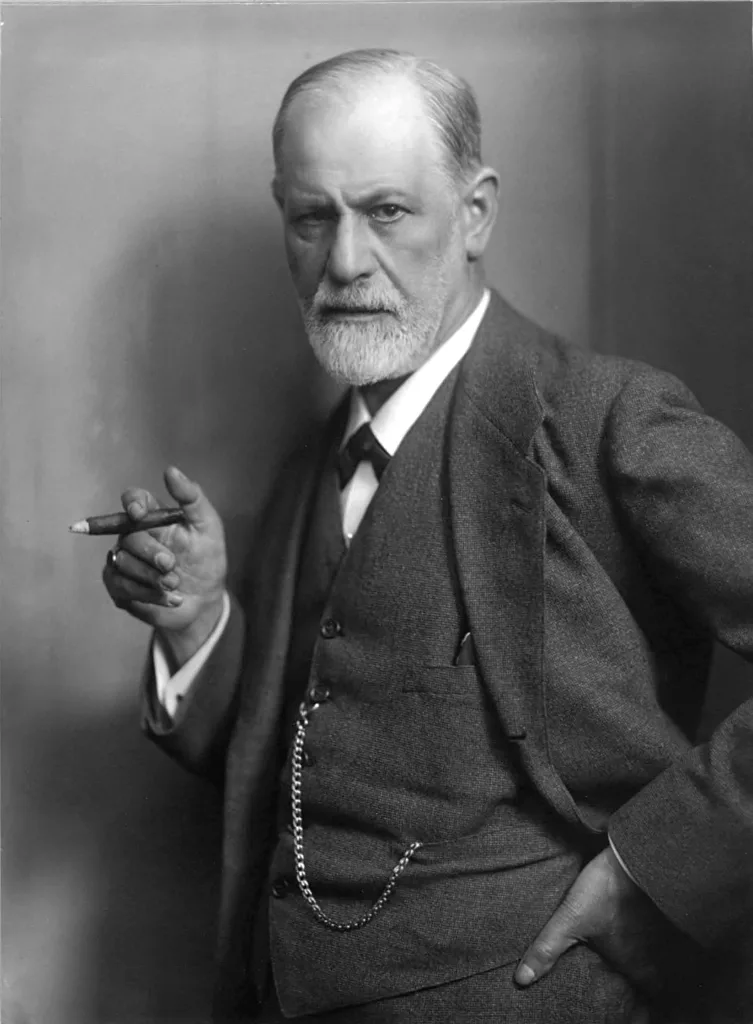Sigmund Freud, often referred to as the father of psychoanalysis, developed this groundbreaking theory in the late 19th century. Born in 1856 in what is now the Czech Republic, Freud was a neurologist by profession. He was initially searching for an effective treatment for patients suffering from neurotic or hysterical symptoms.
Freud’s interest in the human mind and its workings led him to explore the realm of the unconscious. He believed that our unconscious thoughts and desires greatly influence our behavior and mental well-being. This idea formed the foundation of his psychoanalytic theory.
Psychoanalysis is based on the notion that our unconscious mind contains repressed memories, desires, and conflicts that influence our conscious thoughts and behaviors. Freud believed that gaining insight into these unconscious processes could help individuals understand and resolve their psychological issues.
One of Freud’s most significant contributions to psychoanalysis was the identification of three distinct aspects of the mind: the id, ego, and superego. According to Freud, the id represents our primitive and instinctual desires, seeking immediate gratification. The ego acts as the mediator, balancing the id’s desires with the demands of reality. Lastly, the superego represents our moral and ethical principles, internalized from society and family.
Freud also introduced the concept of defense mechanisms, which are unconscious strategies we employ to cope with anxiety and protect ourselves from emotional distress. Examples of defense mechanisms include repression, denial, projection, and displacement.
Another key aspect of Freud’s psychoanalysis is the interpretation of dreams. Freud believed that dreams were the “royal road to the unconscious.” He argued that dreams allow us to fulfill our repressed desires and wishes in a disguised and symbolic form. Analyzing dreams, according to Freud, can provide valuable insights into our unconscious mind.
Freud’s theories were met with both enthusiasm and criticism during his lifetime and continue to be debated today. Some of his ideas, such as the Oedipus complex and the psychosexual stages of development, have become an integral part of modern psychology. However, other aspects of his theory, such as his emphasis on sexual and aggressive instincts, have been challenged and modified over time.
Despite the controversies surrounding his work, Freud’s contributions to the field of psychology cannot be denied. His exploration of the unconscious mind and his development of psychoanalysis have had a profound impact on our understanding of human behavior and mental health.
Sigmund Freud played a pivotal role in the development of psychoanalysis. Through his exploration of the unconscious mind and his theories on defense mechanisms, dream interpretation, and the structure of the mind, Freud revolutionized our understanding of human psychology. While his ideas continue to be debated, his contributions to the field remain significant and continue to shape the way we think about the human mind.
Who Is The Father Of Psychoanalyst?
The father of psychoanalysis is Sigmund Freud (1856-1939). He is widely recognized as the pioneer and founder of this influential psychological theory and treatment approach. Freud’s groundbreaking work revolutionized our understanding of the human mind and laid the foundation for modern psychotherapy.
Freud was born in Austria and trained as a neurologist. Through his clinical work and research, he developed a comprehensive theory of the unconscious mind and the role it plays in shaping human behavior. Freud believed that unconscious desires and conflicts, often rooted in early childhood experiences, influence our thoughts, emotions, and actions.
One of Freud’s most significant contributions was his exploration of the psychosexual stages of development. He proposed that individuals pass through different stages during childhood, each characterized by a primary erogenous zone and specific psychological conflicts. This theory has had a lasting impact on our understanding of human development and personality formation.
Freud also introduced various therapeutic techniques, such as free association, dream analysis, and interpretation of unconscious thoughts and behaviors. These methods aimed to bring unconscious conflicts into conscious awareness, allowing individuals to gain insight and resolve psychological issues.
While Freud’s theories have faced criticism and evolved over time, his influence on the field of psychology cannot be overstated. His ideas continue to shape our understanding of the human mind, and psychoanalysis remains a significant approach in mental health treatment.
Sigmund Freud is considered the father of psychoanalysis. His groundbreaking work in understanding the unconscious mind and developing therapeutic techniques has had a profound and lasting impact on the field of psychology.

How Did Psychoanalysis Develop?
Psychoanalysis developed through the pioneering work of Sigmund Freud, a renowned neurologist from Vienna, in the late 19th century. Freud was initially searching for an effective treatment for patients suffering from neurotic or hysterical symptoms. His exploration eventually led to the formulation of his own theory of psychoanalysis.
Here is a step-by-step breakdown of how psychoanalysis developed:
1. Freud’s early work: In the 1880s, Freud began to explore the use of hypnosis as a therapeutic technique for treating patients with psychological disorders. However, he later shifted his focus to the role of unconscious processes in these disorders.
2. The Interpretation of Dreams: Freud’s breakthrough moment came with the publication of his book “The Interpretation of Dreams” in 1899. In this work, he introduced the idea that dreams have hidden meanings and can provide insights into the unconscious mind.
3. The unconscious mind: Freud postulated that the mind is composed of three levels: conscious, preconscious, and unconscious. He believed that the unconscious mind holds repressed memories, desires, and conflicts that influence our thoughts and behaviors.
4. Psychoanalytic techniques: Freud developed several psychoanalytic techniques to explore the unconscious mind, including free association, dream analysis, and the analysis of slips of the tongue (known as “Freudian slips”).
5. The Oedipus complex: Freud’s theory of the Oedipus complex, introduced in 1899, proposed that young boys develop sexual desires for their mothers and view their fathers as rivals. This concept became a key aspect of psychoanalytic theory.
6. Structural model of the mind: Freud further developed his theory by introducing the structural model of the mind, which divided it into three components: the id (unconscious and instinctual drives), the ego (mediator between the id and the external world), and the superego (internalized moral standards).
7. Defense mechanisms: Freud identified various defense mechanisms, such as repression, denial, and projection, which individuals employ to cope with anxiety and protect themselves from distressing thoughts and memories.
8. Psychosexual development: Freud proposed that individuals pass through distinct psychosexual stages of development, including the oral, anal, phallic, latency, and genital stages. Successful resolution of each stage contributes to healthy adult personality development.
9. The psychoanalytic movement: Freud’s ideas gained traction, and he founded the International Psychoanalytical Association in 1910. This marked the beginning of the psychoanalytic movement, which attracted followers and led to the development of different psychoanalytic schools of thought.
10. Later developments: Over time, Freud’s ideas were both expanded upon and criticized by other psychoanalysts, leading to the development of various psychoanalytic theories and approaches. These include the works of Carl Jung, Alfred Adler, and Melanie Klein, among others.
It is important to note that while psychoanalysis has had a significant influence on psychology and mental health, it has also faced criticism and evolved over time. Nonetheless, Freud’s groundbreaking work laid the foundation for the development of modern psychotherapy and continues to shape our understanding of the human mind.
What Are The 3 Principles Of Psychoanalysis?
The three principles of psychoanalysis are the dynamic unconscious, the plasticity of the interpersonal drives, and the mastery of experience through reversal of voice.
1. Dynamic Unconscious: This principle refers to the idea that there is a part of our mind that operates outside of our conscious awareness and influences our thoughts, feelings, and behaviors. According to psychoanalysis, our unconscious mind is constantly in motion, containing repressed memories, desires, and conflicts that can shape our behavior in ways we may not fully understand. By bringing these unconscious processes to light through techniques such as free association and dream analysis, psychoanalysis aims to uncover and resolve inner conflicts.
2. Plasticity of the Interpersonal Drives: This principle emphasizes the importance of our interpersonal relationships and how they impact our psychological development. Psychoanalysis views our drives and desires as being shaped by our interactions with others, particularly in early childhood. Our relationships with parents or caregivers, for example, can influence our self-esteem, attachment patterns, and overall well-being. By exploring these dynamics and their impact on our current relationships, psychoanalysis seeks to promote insight and personal growth.
3. Mastery of Experience through Reversal of Voice: This principle involves the process of gaining mastery over our past experiences by reevaluating and reinterpreting them from a different perspective. Psychoanalysis suggests that our internal conflicts and emotional distress can be traced back to unresolved issues from our past. By revisiting and reexamining these experiences, we can gain new insights and understanding, leading to emotional healing and personal transformation. This principle emphasizes the importance of self-reflection, introspection, and the ability to view oneself and one’s experiences from different angles.
The three principles of psychoanalysis involve the recognition of the dynamic unconscious, the influence of interpersonal relationships on our psychological development, and the process of gaining mastery over our experiences through reevaluation and reinterpretation. These principles form the foundation of psychoanalytic theory and practice, providing a framework for understanding and addressing the complexities of human psychology.

Conclusion
Psychoanalysis was developed by Sigmund Freud, who is widely recognized as the father of psychoanalysis. Born in 1856 in what is now the Czech Republic, Freud was a neurologist who dedicated his life to understanding the human mind and behavior. He formulated his theory of psychoanalysis in Vienna during the 1890s, aiming to find an effective treatment for patients suffering from neurotic or hysterical symptoms.
Freud’s exploration of the human mind led him to propose revolutionary concepts such as the unconscious, which he divided into three levels: the conscious, preconscious, and unconscious. He believed that our unconscious thoughts and desires play a significant role in shaping our behavior, often conflicting with our conscious desires.
Furthermore, Freud introduced the idea of defense mechanisms, which are unconscious strategies we use to protect ourselves from anxiety or uncomfortable thoughts. These defense mechanisms include repression, denial, projection, and many others.
Freud’s psychoanalytic theory also emphasized the importance of childhood experiences, particularly the role of early relationships and the development of the psychosexual stages. He suggested that unresolved conflicts during these stages could lead to psychological disorders later in life.
Despite facing criticism and controversy, Freud’s theories have had a profound impact on psychology and continue to influence the field today. Psychoanalysis paved the way for the development of various therapeutic approaches, such as psychodynamic therapy, which focuses on exploring unconscious conflicts and their impact on current behavior.
Sigmund Freud’s contributions to the field of psychoanalysis have had a lasting impact on our understanding of the human mind and behavior. His theories and techniques have shaped the way we approach therapy, providing valuable insights into the complexities of the human psyche.
